Follow live coverage of Argentina vs Canada in the semi-final of Copa America today
EAST RUTHERFORD, New Jersey – “We want to win (Copa America),” said Canada defender Richie Laryea. “That might sound bold and crazy, but that’s what this team is here to do.”
This is not the Canada men’s national team built on positive vibes who went to the 2022 World Cup and lost all three games. A changing of the guard with an emphasis on youth and a new head coach in Jesse Marsch means only 15 of the 26 players who went to Qatar are in Canada’s squad for Tuesday’s Copa America semifinal against Argentina.
This Canada team is still riding the wave of upward momentum and togetherness, but they’ve also become a far more hardened and experienced outfit. That combination of impressive quality — with the majority of Canada’s starters plying their trade in Europe — and learning from past failures makes this the best Canadian men’s national team of all-time. And that team wants fans old and new to take note.
“We’re serious,” Laryea said. “(Copa America) is a tournament that could turn heads for a lot of fans, maybe gain some new fans who don’t watch us a lot other than in big competitions.”
So who are the players who have earned a semifinal date against the world champions? What should new fans know so that they can slip into conversation in Canada’s many soccer bars with ease?
With help from Canada’s most-capped player and legend Atiba Hutchinson, The Athletic takes you from the back to the front of the roster…
Yes, there is growing genuine concern over the newfound lack of star power in goal for Canada’s men’s national hockey team but you know who doesn’t have that concern? The men’s national soccer team, who has one of the best goalkeepers of Copa America in Maxime Crepeau.
No goalkeeper has made more saves at Copa America than Crepeau (16). Every game, the defensive high line that Marsch utilizes means Crepeau has had to burst out of his goal and stop opposition attackers.
Perhaps the most memorable save of his career came in the second half of the tournament opener against Argentina, when the 30-year-old lunged to stop Lionel Messi on a breakaway and keep Canada in the game.
Another HUGE denial by Crepeau! This time on none other than Messi #RCTID pic.twitter.com/j8JftGzw3y
— Adam Susman (@Adam_Susman) June 21, 2024
Off the pitch, the Portland Timbers goalkeeper is as genuine as they come. He’s the kind of person who won’t just offer to lend a hand when you’re making dinner, but also do the dishes without being asked.
“I was part of the Montreal Impact when we signed (Crepeau) to his first contract at 18 years old,” Marsch said. “And he was a mature 18-year-old.”
During oppressive midday heat in Kansas City during Canada’s 1-0 group-stage win over Peru, assistant referee Humberto Panjoj collapsed. Crepeau was the first to try and help before alerting referee, Mario Escobar, to get his attention and stop the game.
“At that point, football doesn’t matter. I was happy he was conscious,” Crepeau later said.
(Jamie Squire/Getty Images)
For years, Crepeau was the understudy to the bombastic Milan Borjan. Crepeau waited patiently for his opportunity, and now his pure shot-stopping ability and the confidence he gives his team in goal make him one of Canada’s most integral players.
Want a prototypical scrappy and physical Canadian defender? Alistair Johnston is going to win over fans with his relentless approach, with some much-needed technical quality on the ball as well.
“First and foremost, (Johnston) is a great human being. But he is an absolute monster on the pitch. He wants to kill you. I respect that, being able to have that split is important in football,” said Canada forward Theo Bair.
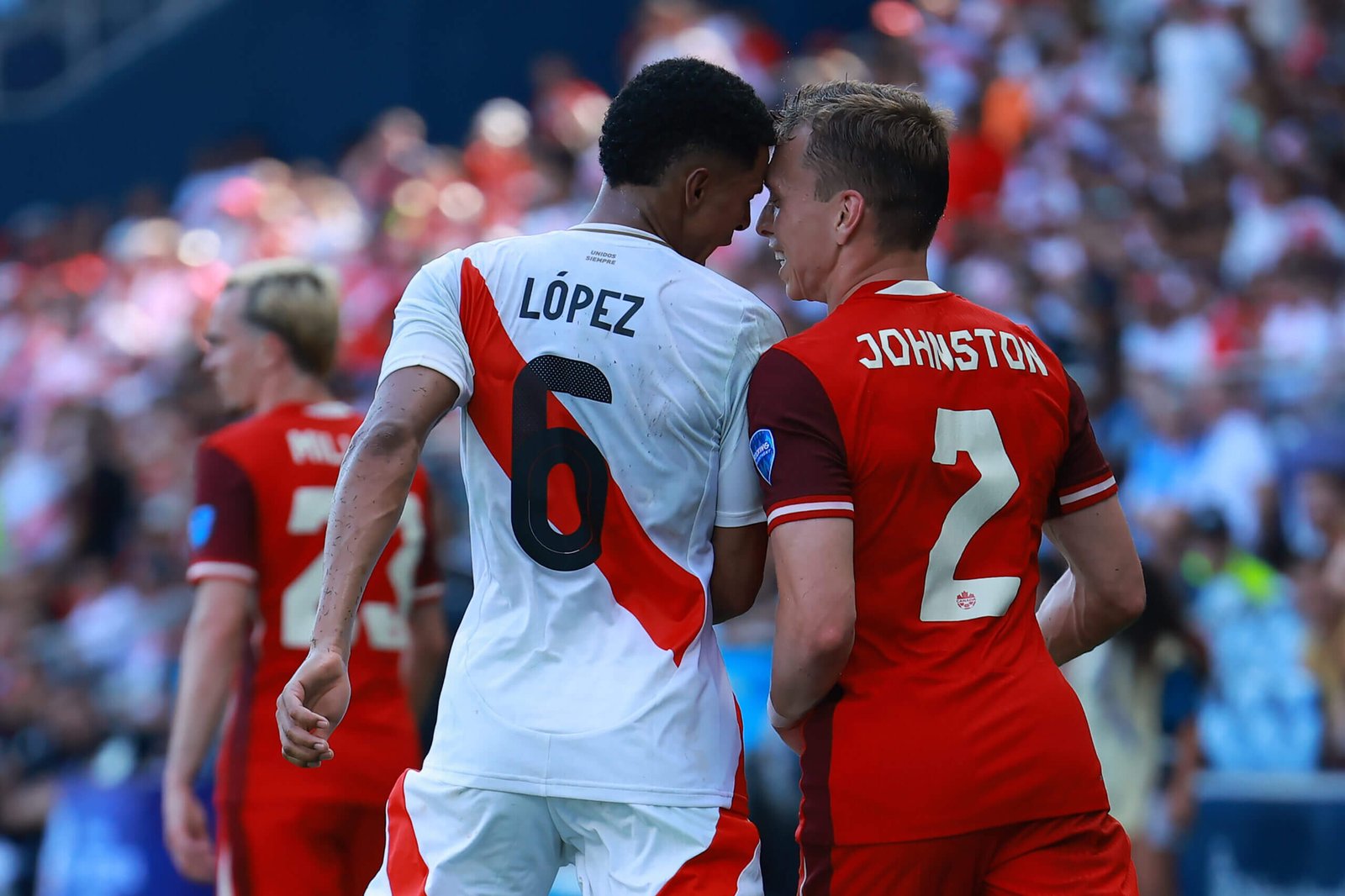
Johnston goes head-to-head with Peru’s Marcos Lopez (Hector Vivas/Getty Images)
The Celtic defender, 25, had his game of the tournament when it mattered against Venezuela, shutting down Yeferson Soteldo time and time again. Very few Canadians make life as miserable for the opposition as Johnston.
“I’ve seen him clash with a bunch of guys,” Bair, who plays his club soccer for Motherwell in the Scottish Premiership against Johnston. “I’ve had guys come in at half-time and say to me, ‘That Johnston is a menace. He’s kneed me in the butt, he’s elbowed me in the neck.’ He’s a tough, tough opponent.”
Beside Johnston is the future of the Canadian back line: Moise Bombito.
The 24-year-old has gone from a virtual unknown in Canadian soccer to a lightning-quick, athletic and intelligent centre-back who is never far away from a goal-saving tackle.
And now, after a recent transfer offer from France’s Lyon, the Colorado Rapids centre-back should be considered the hipster pick for Canada’s next favourite men’s national team player.
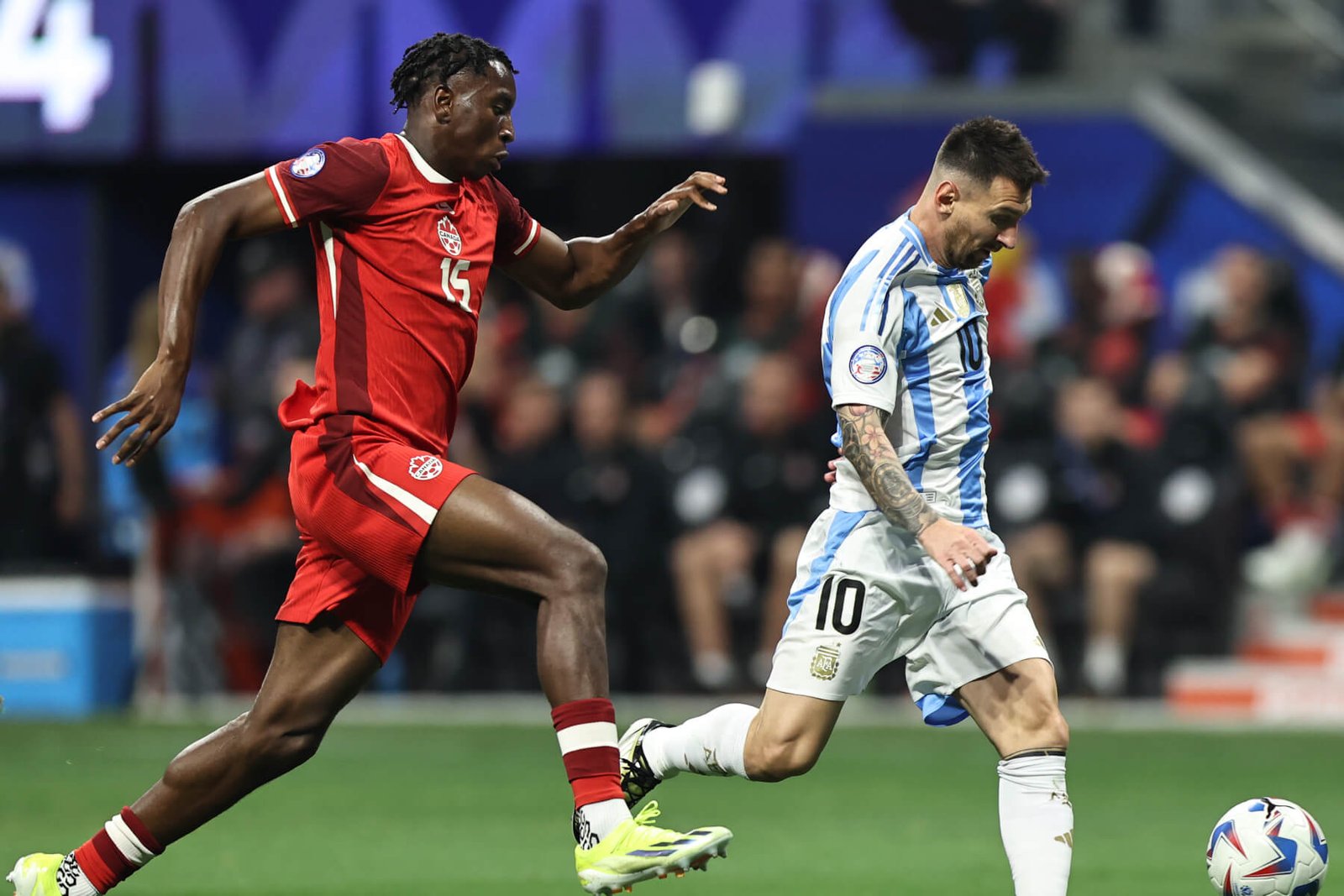
Bombito tracks Messi (Omar Vega/Getty Images)
“Moise is having a welcome-to-the-party year so far this past calendar year. His athleticism jumps off the charts right away. But he’s much more comfortable than a lot of people I think give him credit for,” Johnston said.
Coming from the Saint-Laurent borough in Montreal has given Bombito the kind of profile necessary to succeed in international soccer.
“One thing that players (from Saint-Laurent) have is that they don’t care what’s in front of them,” Bombito’s longtime coach in Saint-Laurent, Rocco Placentino, said. “Growing up in certain areas, you have to be street smart. Adversity for them is very minimal. They’re not scared.”
Bombito’s centre-back partner is Derek Cornelius.
After years of not getting playing time for Canada, Cornelius has won two titles for Malmo in Sweden and has become a bona fide starter. So if you’re looking for the type who can push through adversity and never once complain, Cornelius is your guy.
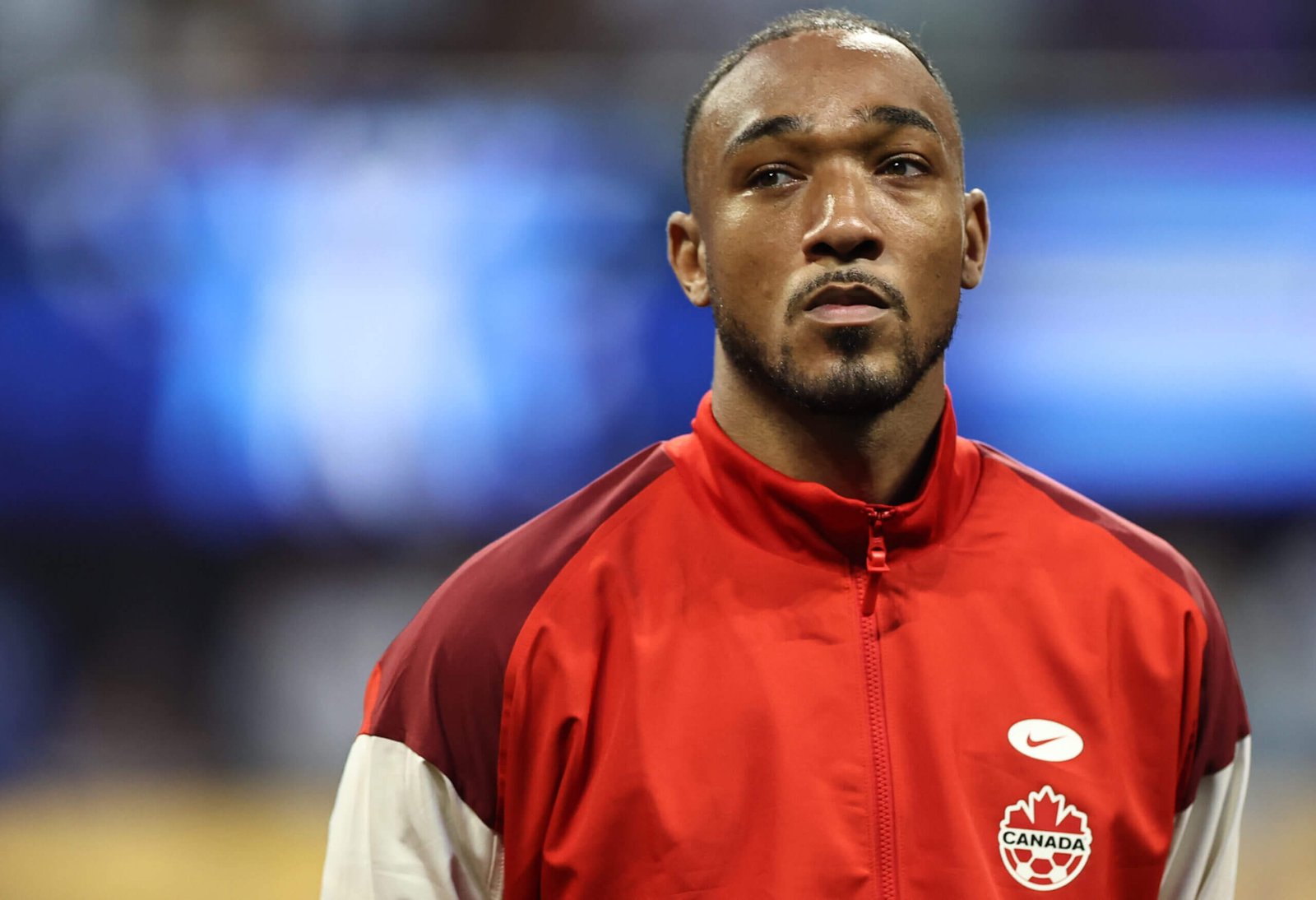
“(Cornelius) loves the game. You have to drag him off the pitch at the end of training,” Hutchinson said. “I’ve seen it so many times when players don’t get called into the national team, and then they do and they’re like, ‘These guys aren’t treating me the way I need’ and they turn down the call. That’s not Derek. He never ever complained about not getting his minutes.”
But even if Cornelius, 26, is something of a silent assassin, he’s still been known to pounce at times, according to team-mates.
“Derek is the biggest cheater in football games like two-touch,” Ismael Kone said. “Oh my God. He acts like he doesn’t want to cheat, but he is the biggest cheater, I promise.”
Next, there is the type of player not every team has but in international soccer, every team needs: the brawling, engaging competitor who will do whatever it takes to win. Those in hockey circles might call him the “Pest” but those who have played with Richie Laryea know he’s so much more than that.
Because Laryea, the 29-year-old Toronto FC defender, never backs down.
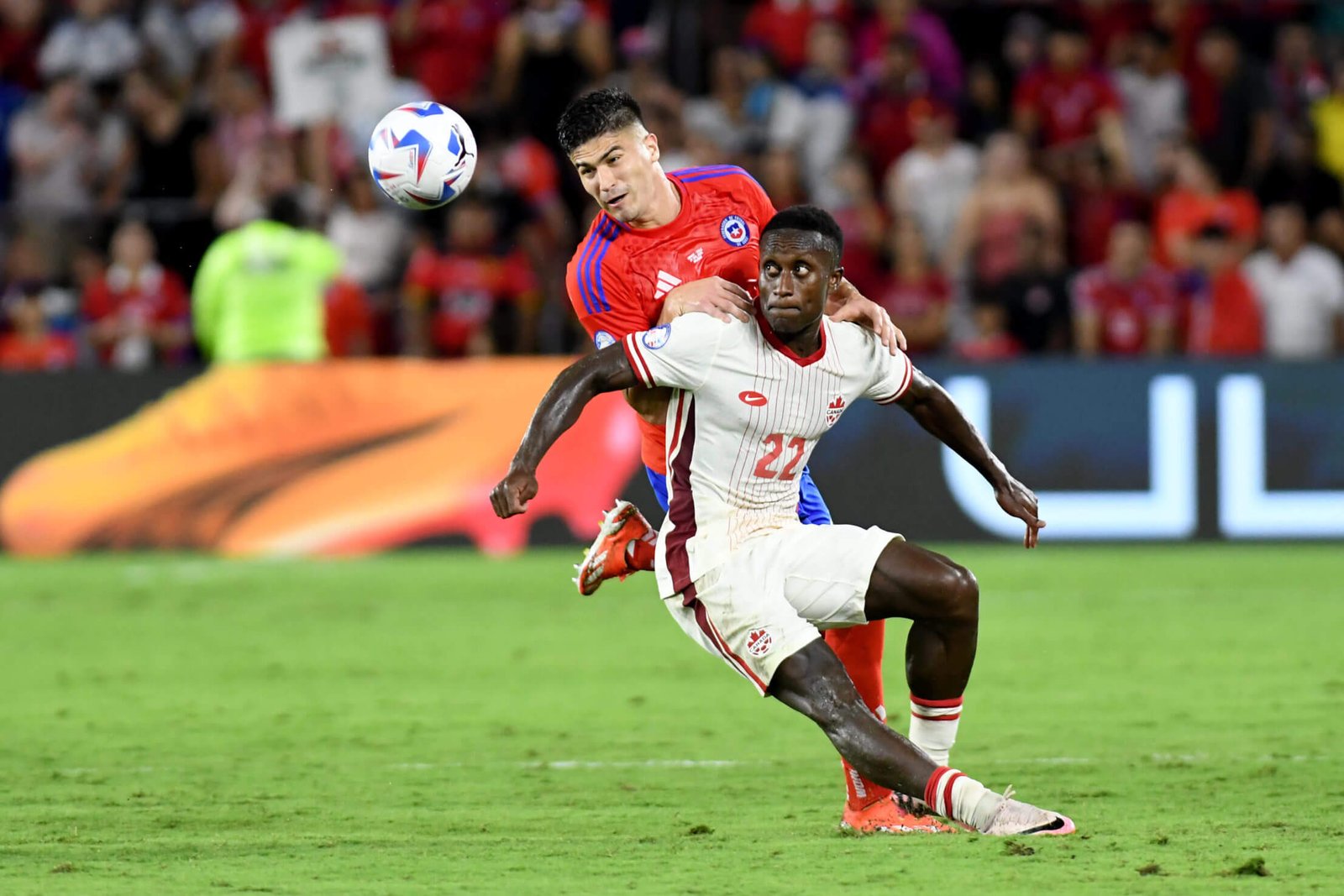
(Perry McIntyre/ISI Photos/Getty Images)
“We never really had that with Canada: someone who would stand up to other players,” Hutchinson said. “Richie is one of the guys who started that… ‘We don’t take s*** from anybody we play against now.’”
Alphonso Davies is as close to a household name in Canadian men’s soccer as you’ll get. He was a refugee who began playing soccer because of a subsidized program in Edmonton. He rose to prominence as the best Canadian player of all time, winning the Champions League with Bayern Munich in the process.
Davies became a face of multiculturalism in Canada and was the first player to score for his country in a men’s World Cup.
After years of developing, the left-back is the new captain of the team and has put his stamp on this tournament by leading by example.
“It’s created clarity,” Marsch said of Davies as captain. “He doesn’t feel with this team now that he has to make every play. He knows by fulfilling his role and doing the best he can do at the things he’s good at, that’s the best he can do to help the team.”
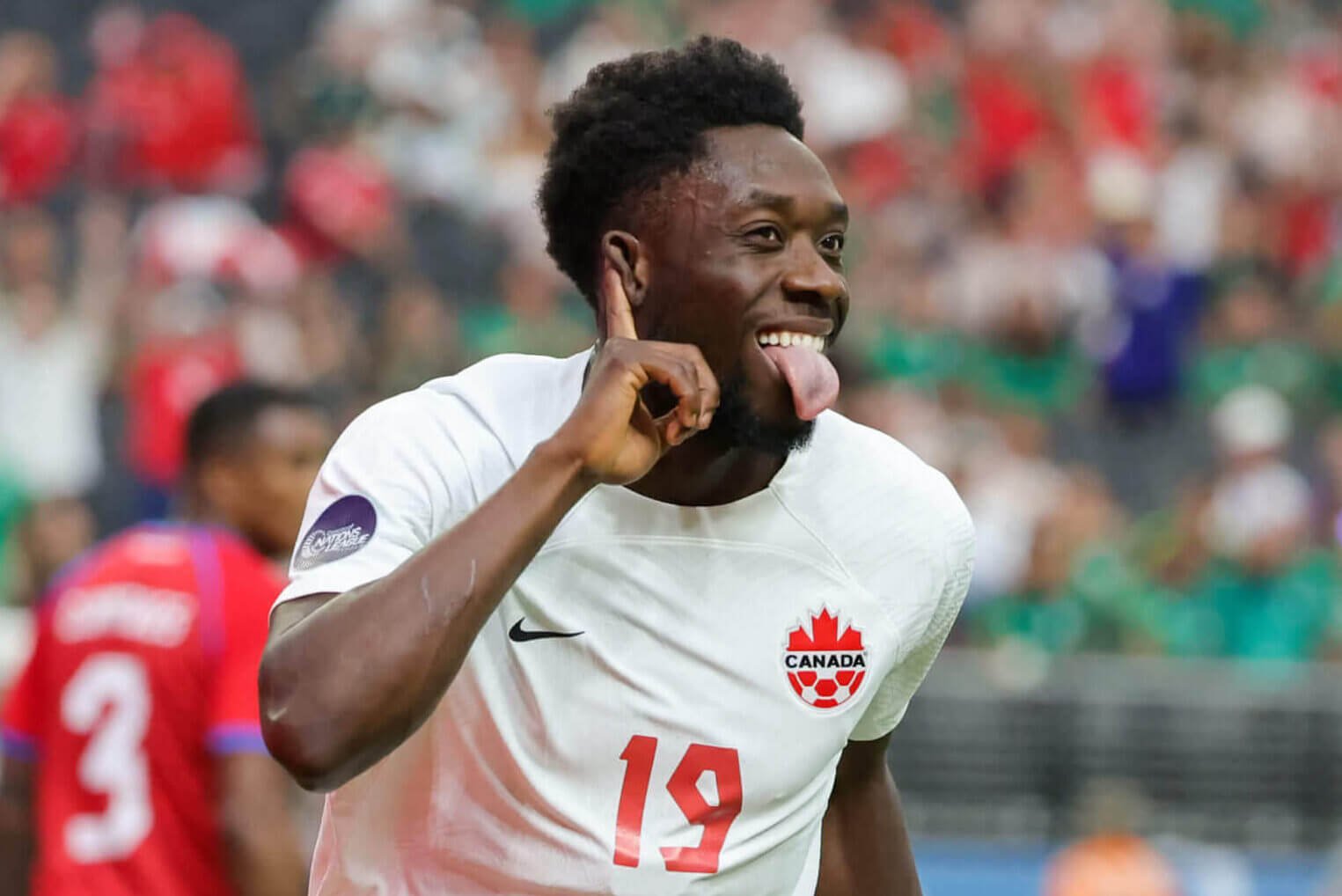
(Ethan Miller/Getty Images)
Davies may only be 23 but so much is known about him already. But his Canada teammates insist there’s more to him than meets the eye.
“(Davies) used to nap more than anyone I know,” said Bair.
When Davies was emerging with the Vancouver Whitecaps first team as a teenager and Bair was in the under-18 team, Davies would call Bair after training sessions to see if he was at his downtown Vancouver apartment. They would play long games of FIFA against each other… until Davies had other plans.
“And then he’d lay on my bed. We’d be talking, playing FIFA, and then he’d be out for like two hours. He’d wake up and just say, ‘See ya.’ He would nap almost every single day at my house,” Bair said, laughing at the memory.
In the middle of the park, Canada’s three leading midfielders all have distinct personalities and stories. If you appreciate a hardened mentality and value consistency over any other quality, Stephen Eustaquio is your guy.
Marsch calls the Porto midfielder, 27, a “rock” for Canada’s play on and off the ball. The vice-captain drives his team-mates by constantly raising the tempo in games and practices.

(Hector Vivas/Getty Images)
“Stephen is mentally maybe our most mature, careful, clear and secure person on the team,” Marsch said.
And to be performing at such a high and intense level after tragically losing both his parents in a year before Copa America? If you want a warrior, you’ve found it in Eustaquio.
Near Eustaquio is Jonathan Osorio, who will soon eclipse Borjan as having the second-most caps for Canada.
The Toronto FC midfielder, 32, has strong Colombian roots and understands what it’s like to play against South American teams. Canada need his savvy to moderate trying times as much as they do his swift ball movement.

(Charly Triballeau/AFP via Getty Images)
“One of the more intelligent guys on the team,” Hutchinson said of Osorio. “I’ve seen a few moments where he’s just not happy with what he’s seen in the game, and when he talks, everyone listens.”
At the top of Canada’s midfield is a player who may have the highest ceiling of any men’s national team ever, and the sky-high confidence and swagger to back it up: Ismael Kone.
Kone is just 22 but his physical traits, silky smooth movement, powerful shooting ability and tendency to break apart opposition lines could make him a star. His impending move from English side Watford to France’s Marseille during Copa America backs up the theory.

(Juan Mabromata/AFP via Getty Images)
But for all his star power, it is how he applies it that should make him an easy pick for your new favorite Canadian player.
Kone struggled early on during Copa America but still came on late against Venezuela after not playing the previous match, then cooly stepped up and buried the winning penalty… even if it was not exactly the way things had been planned.
“We had a session shooting penalties, in good way, I’ll say,” Kone said with a grin. “And then in the next session, I didn’t want to shoot.
“So when we went to penalties, (Marsch) felt like I didn’t want to take one because I was scared. That’s why he didn’t put me in the first five. (Jonathan David) told the coach I should take one but we all respect the decision. Afterwards, when it was time for the sixth, Jonathan told me I had to shoot. He said ‘You shoot, you’re going to give us the victory.’”
Kone scored and barely celebrated.
Pressão? Que pressão? 🤫 pic.twitter.com/QVOoM7ItmP
— CONMEBOL Copa América™ POR 🇧🇷 (@copaamerica_POR) July 6, 2024
Hutchinson remembers watching Kone make his Canada debut at 19 in a World Cup qualifier in Costa Rica and feeling at ease about the future of the Canadian midfield.
“I was like, ‘OK, this guy is playing like he’s been with the national team, playing in a game with that type of atmosphere, and doing it like he had been doing it for years.’ And he had no fear,” Hutchinson said.
Do you value players who have learned from past failures? If so, you’d probably value Liam Millar.
The speedy winger, who plays for Swiss side Basel, has bounced around on loans for the past few seasons but looks set for a long-term deal in England because of his improved play at Copa America.

(Leonardo Fernandez/Getty Images)
“I would get the ball sometimes and put my head down, go go go and not take a breath and relax for a minute,” Millar, 24, told The Athletic. “And I feel like that’s something I really improved over the last couple of years where I can have that moment of calmness.
“I still have to improve in some parts, like around the box, but I feel like there are a lot of moments where now I can take that breath. And that’s probably why I’ve come a long way.”
Which Canadian has come virtually out of nowhere at Copa America? That would be Jacob Shaffelburg, otherwise known as the ‘Maritime Messi’.

(Matthew Ashton – AMA/Getty Images)
Just the second men’s national team player ever from Nova Scotia, Shaffelburg plays every game with his hair on fire, running relentlessly and driving towards the goal with fearlessness. The Nashville SC winger has been overlooked his entire career — whether that’s not getting called into youth national teams because he was not from one of Canada’s large urban centres or being cast off by Toronto FC.
Shaffelburg, 24, is your classic, “Wake up and put everything in your job, come home and do it the next day” type of player. That was enough for Sidney Crosby to want to grab Shaffelburg’s jersey after celebrating Canada’s win in Dallas.
Whatever Shaffelburg lacks in a proper academy upbringing he makes up for with his daring approach. If there’s a player you won’t be able to take your eyes off of, it’s Shaffelburg and his mess of blond, curly hair cutting through Argentina’s defence.
Tajon Buchanan might be out of Copa America having suffered a broken leg, but his drive to succeed still inspires his team-mates. Shaffelburg pulled out a Buchanan jersey to honor his team-mate after scoring against Venezuela.

(Charly Triballeau/AFP via Getty Images)
Buchanan, 25, was Canada’s best player at the 2022 World Cup and is at the beginning of his ascent with Italian club Inter Milan.
If you want to get in on the ground floor and pick a Canadian goalscorer at home in the 2026 World Cup, buy some Buchanan stock. His pace, intense dribbling ability and constant desire to get close to goal will pay off.

(Mike Hewitt/FIFA via Getty Images)
So many people in the soccer world already know about Jonathan David’s clinical finishing ability for Canada and Lille.
The forward, 24, is just two goals off Cyle Larin for Canada’s all-time lead, having played 19 fewer games. That’s why he’s being linked with the biggest clubs in the game, such as Chelsea, for a move this summer.
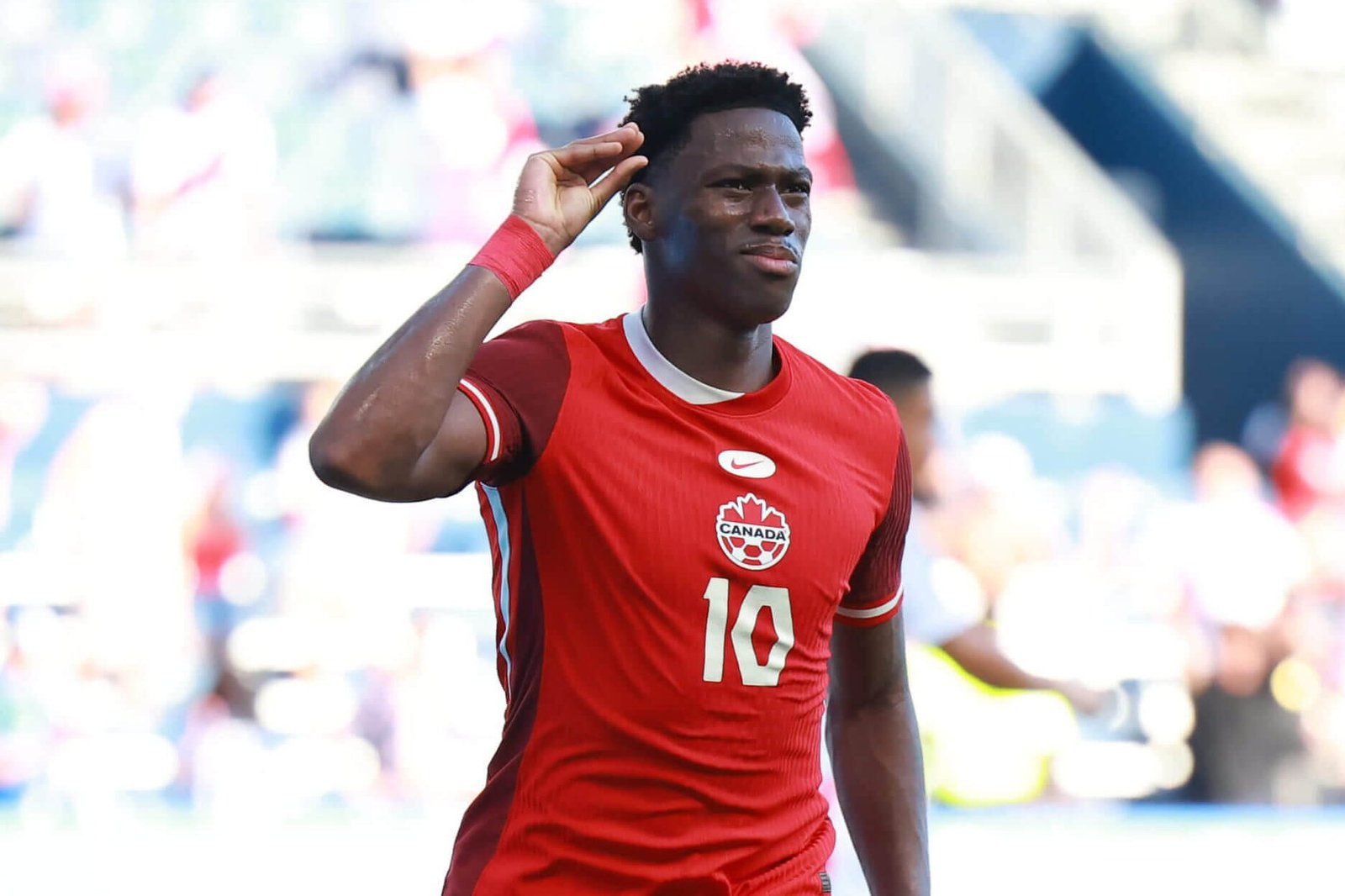
(Hector Vivas/Getty Images)
But what many people might not know about the largely reserved forward? If you are the type who loves surprises, you might fancy yourself a David fan.
“A really, really funny guy,” Laryea said with a smile. “He doesn’t show it, but he’s hilarious. Always making smart remarks.”
Finally, one of the most misunderstood players on this Canadian side.
Do you want to see things in a game that others might miss? You are probably already a follower of Cyle Larin.
Canada’s all-time leading goal scorer, 29, has not found the back of the net at Copa America and has taken heat online. But when Canada boast their togetherness as a group, it can be seen in how this team defends the Mallorca forward.
“I feel like there are a lot of fans that are just coming out the woodwork and they watch a game on anything to know everything about football and everything about players,” Laryea said. “Yes, he hasn’t scored yet, but (Larin) is doing so much for the team.

(Fernando Leon/ISI Photos/Getty Images)
“If you look at the distance he’s covering in games, the way he’s getting after defenders — him and Jonathan are the first line of pressure for us and if they’re not pressing well we can’t press well behind them as a team. A lot of us here, we don’t really have a lot of time for fans (who) think they can watch a game and start critiquing people.”
Yes, Larin has an xG (expected goals, the likelihood of a shot becoming a goal) of 1.1 through Copa America and should have scored. But to assume a forward’s sole responsibility is to score is to not understand the complexities of the game.
If you want to be a true soccer head, you should probably watch Larin closely.
“He’s so hungry to win and be part of a successful team,” Hutchinson said. “Even when he’s not scoring, there’s the work he’s putting in: tracking back, getting behind the ball, not taking a moment in the game off. You see a lot of strikers not doing that, but Cyle isn’t like that. He’ll do the work.”
(Top photo: Ron Jenkins/Getty Images)
Read the full article here


